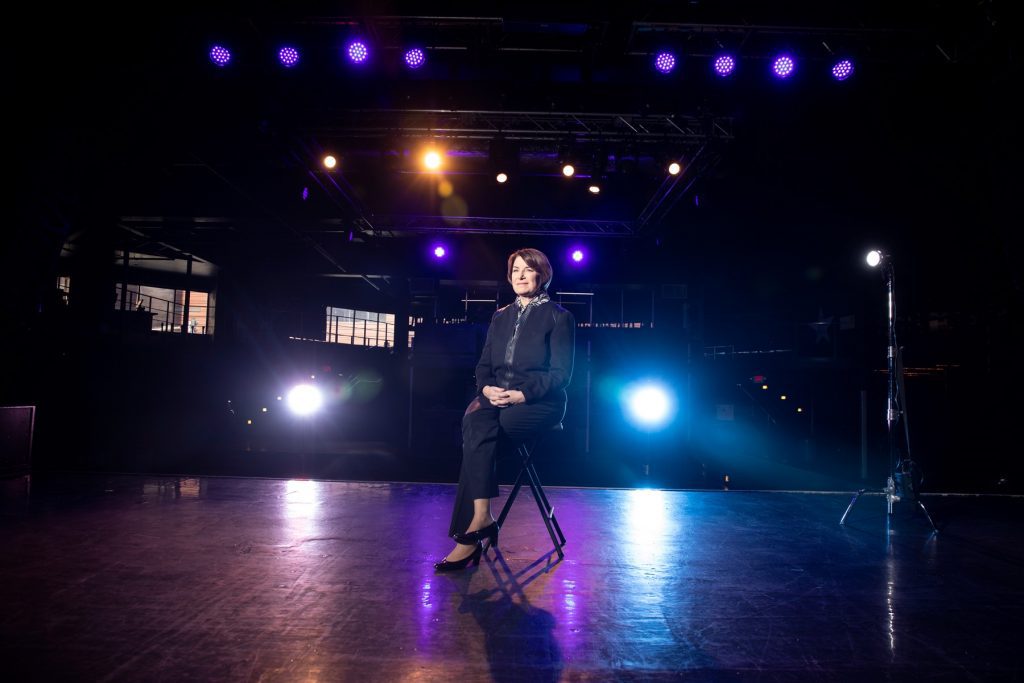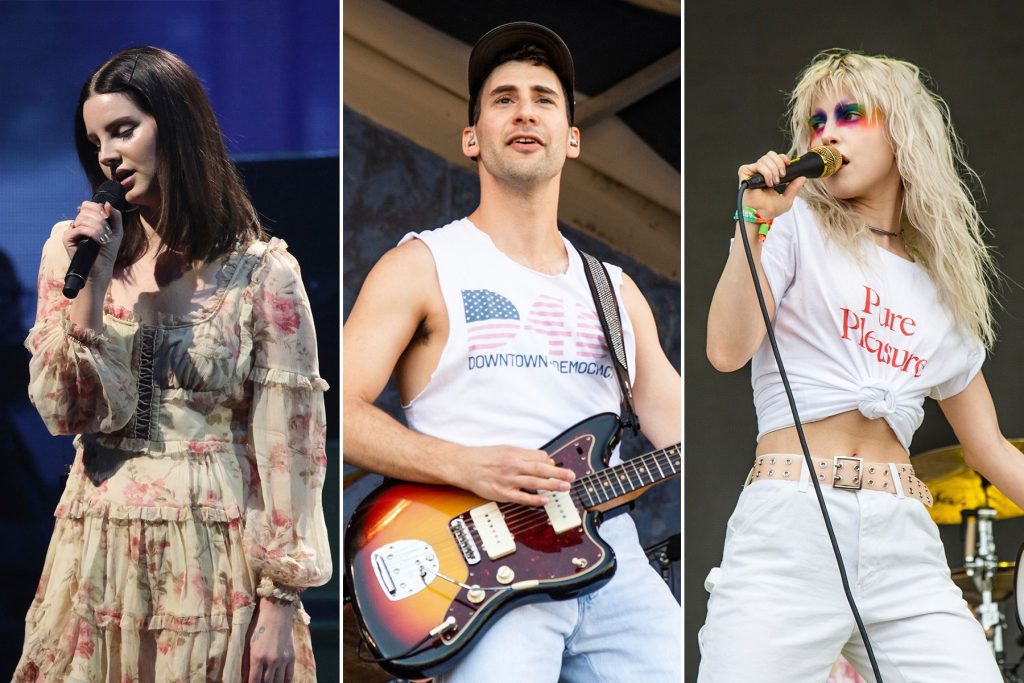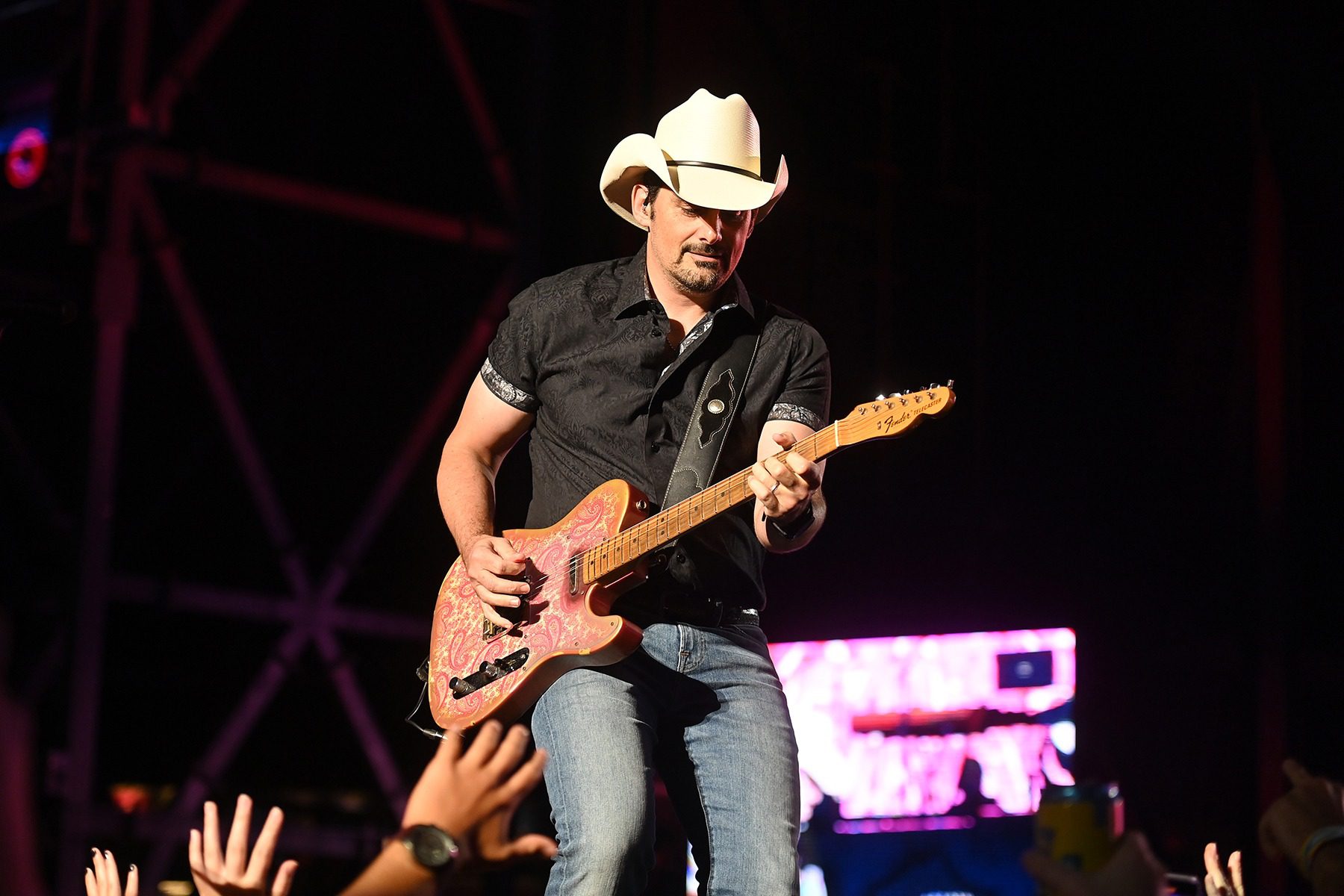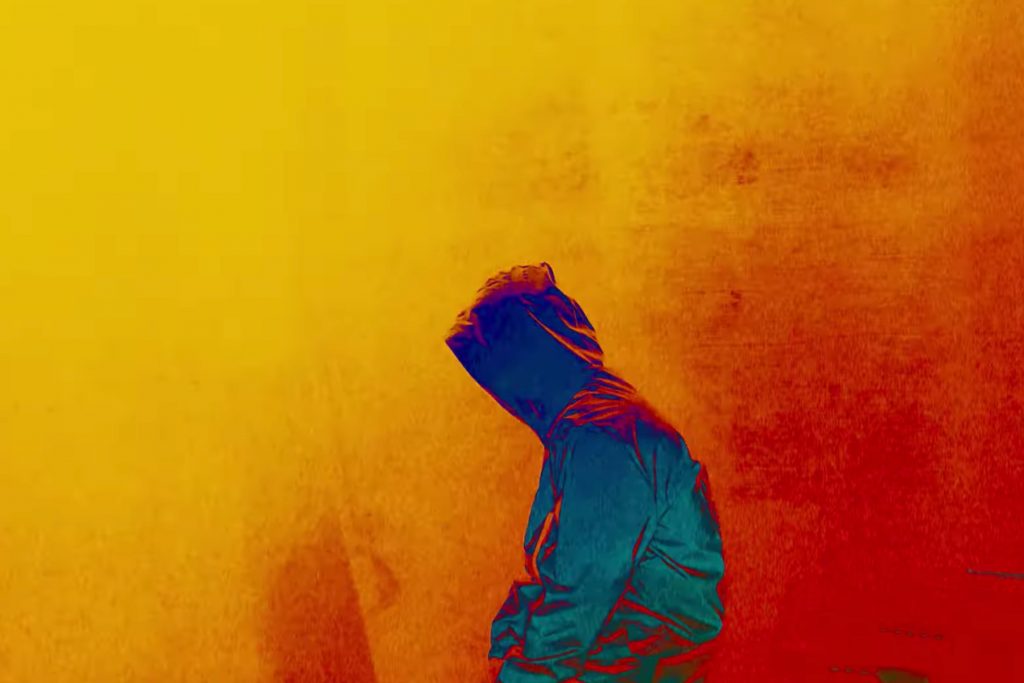
‘We Saved the Music’: Amy Klobuchar on Getting $10 Billion for Venues Into Stimulus Bill
As the coronavirus pandemic began to destroy lives and livelihoods this spring, the music industry quickly realized the dire straits they were facing. Venues were some of the first businesses to close and will be one of the last to open, and critical PPE money — utilized by millions of other businesses — were less effective or useless to venue owners that were forced to lay off their entire crews.
In July, Senators Amy Klobuchar and John Cornyn introduced the Save Our Stages Act that earmarked $10 billion to venue owners, promoters and other music business professionals to use for rent, utilities, mortgages, and PPE, among various costs. A new lobbying group called the National Independent Venues Association (NIVA) was formed in April to help push through its passage and, despite what appeared to be slim odds, the entirety of the bill was folded into the recently passed $900 billion stimulus bill President Donald Trump is expected to sign into law on Tuesday.
The bill will allow independent venues, Broadway theaters, museums, talent agencies, and managers to apply for grants through the Small Business Administration for six months of financial relief. Applicants will be able to begin petitioning for relief within two weeks of the bill’s passage into law, with grants capped at $10 million for all participants.
blogherads.adq.push(function () {
blogherads
.defineSlot( ‘medrec’, ‘gpt-dsk-tab-article-inbody1-uid0’ )
.setTargeting( ‘pos’, [“mid-article”,”mid”,”in-article1″,”mid-article1″] )
.setSubAdUnitPath(“music//article//inbody1”)
.addSize([[300,250],[620,350],[2,2],[3,3],[2,4],[4,2]])
;
});
“This is the lifeline our industry so desperately needs to emerge from a devastating year,” NIVA board president Dayna Frank said in a statement. “Without independent venues and promoters across the country working to engage their communities, staff, and artists, our voices would not have been heard … Careers came to a standstill overnight, and people continue to face personal hardships, which is why legislation like this and extending Pandemic Unemployment Assistance is essential.”
Klobuchar and other supporters wisely positioned the bill as much as an economic driver as a cultural one, bringing Republican congresspeople who were skeptical of “saving live music” in to garner widespread bipartisan support. “We have to acknowledge that certain industries are targeted more than other ones by this virus,” Klobuchar told IndieLand in July. The Minnesota senator spoke to IndieLand about the bill’s importance, how it will help the industry and what’s next.
Did the bill pass as you had intended or did you have to make any major compromises to include its final language?
It is so not in the normal course of things that you get an entire bill in as you wanted it. And you actually add funding, because we added partners, but didn’t hurt our original purpose. And this never would have happened without the fans and venues and musicians and theaters across the country.
One of the things that will go down when people look back at how we saved the music and wouldn’t let it die, was that this was such a bipartisan effort and it was reflected in the fan base because it went from country music to rap to classical. And it really did bring out the best in America in terms of what I consider one of the icons of our country culturally, but also one of our best economic drivers. And so it was that combination that we always knew existed in our country, but always gets pigeonholed into one area or another, and we were able to combine it.
What do you attribute as the main driver to the bill’s success?
Part of it was because the coalition stuck together. So when people tried to peel people off or add things without extra money, when we got the extra money, we’re like, “OK.” And we stuck with our basic formula [for venues] based on the revenues from the year before. I think that helped because there were a lot of things suggested that would have hurt us and we didn’t do it. We also have what I consider a very straightforward and fair way of doing this [with the] Small Business Administration. In one month, applications go in. First two weeks, people with 90 percent loss [from the previous year can apply], second two weeks, 70 percent loss from the year before. Then some money left for the remaining [venues] after that. So we can immediately get these grants out.
blogherads.adq.push(function () {
blogherads
.defineSlot( ‘medrec’, ‘gpt-dsk-tab-article-inbody2-uid1’ )
.setTargeting( ‘pos’, [“mid-article2″,”mid”,”in-article2″,”mid-article”] )
.setSubAdUnitPath(“music//article//inbody2”)
.addSize([[300,250],[300,251],[620,350],[2,4],[4,2],[3,3]])
;
});
Let’s say I’m the owner of an independent music venue. Walk me through the process of getting the money in my account.
So what you do is apply to the Small Business Administration and explain what your revenues were in 2019. And you have certain criteria of which you can apply. So we kind of know what our universe is here. They have to have how many seats, the lighting, etc. You’d apply in a very straightforward way and then the money goes out after that once it’s granted by the Small Business Administration.
So if owners applied for the money next week, when could they expect to see it?
Well, it would be the month after the month of application.
(Aide for Klobuchar interjects): As soon as the bill is signed into law, we will be pushing [the Small Business Administration] extremely hard to do it as soon as possible because they know that they have to do it quickly.
I can picture owners imagining a red-tape nightmare. Can you guarantee that applying for relief will be a relatively painless process?
I believe that’s true. There will always be ones that we’ll have to help because something happens with the application. It always happens. But we believe everyone understands this money needs to get out as quick as possible. And if it doesn’t, then Cornyn and I will be on [the Small Business Administration] in a second.
Amy Klobuchar Speaks to Congress on Save Our Stages Act
Save Our Stages seem to be one of the few elements of the package that gained bipartisan support. Why do you think that was?
I think that through the horror of this pandemic and all the tears and tragedy, people embraced music and culture more and more. But they were just alone doing it on their computers and their phones, and they want it back. They want that sense of community. So I think there was not only an obvious economic turn; no one can dispute it. Everyone knows their hometown theaters are closed down.
Secondly, the emotional value of it you cannot take away. And the fact that people like different kinds of music, but they’re united in liking music. So we were able to get on that. Senator Cornyn and I have led a number of bills successfully — on totally different topics — and I think that helps. We were on the same page the whole time … The Save Our Stages group was really smart about never giving up. There was a certain hope to it. And we had a lot of out-of-work musicians and a lot of creative people, so they were very creative about how they approach this. And it never got mean. It was all done in a very positive way from the beginning.
Will bigger companies like Live Nation and AEG be eligible for any of the relief in this part of the bill?
This does not apply to companies like Live Nation/Ticketmaster. Now, all that being said, once having the theaters saved and everyone saved in the end, it’s good for the whole industry, even if you don’t get money from it.
blogherads.adq.push(function () {
blogherads
.defineSlot( ‘medrec’, ‘gpt-dsk-tab-inbodyX-uid2’ )
.setTargeting( ‘pos’, [“mid”,”mid-articleX”,”in-articleX”,”mid-article”] )
.setSubAdUnitPath(“music//article//inbodyX”)
.addSize([[300,250],[300,251],[3,3],[620,350]])
.setLazyLoadMultiplier(2)
;
});
What do you say to critics who may applaud the bill but are angry that this could’ve been passed in May or July or September?
Well, I agree. And I think we should have done more. We’d love to do the Restart Act in a new year. And I voted for and was for the Heroes Act and was incredibly frustrated. But I think one of the things that helped was a bunch of us have been here since Thanksgiving. I haven’t left. I’ve been here 23 days in a row now and said we wouldn’t go home until this got done. So, the Save our Stages part is good, but some of the other things aren’t as much as they should be.
And there’s no state and local aid. We didn’t take away from state and local aid; the Republicans just wouldn’t fit it in there. But I don’t feel like our priority somehow hurt others or I wouldn’t have supported it. It’s just that they didn’t want to go for certain things and we’re going to have to do that next year. But I think [the SOS Act] is one of the few things that was basically put together in July that got in there.
What message do you have for music venue owners and employees looking ahead to 2021?
Well, that we want them to reopen. We want them to be a vibrant part of our economy. And that’s why we’re putting the full faith and credit of the U.S. government behind them. Because this has been an economic gut punch like no other. And we know it’s tough, and that they’re doing everything they can. And we stand with them because we want our music venues and our theaters to be strong. And we understand the economic driver it is, especially the export side of it internationally. It’s a huge driver of the American economy.
We’re still many months from venues getting back to normal. Music spots were one of the first to close and will be one of the last to open.
Yeah, maybe [some venues] will do minimal opening, so there’ll be a little more like restaurants. But it’s hard to do because they can’t make the revenue that way. And so that’s why this was so important to get them through the next few months. And then as we see, as I believe we will, the decrease in the virus, hopefully they’ll be to the point where they can start opening again. And all of this depends on the mixture of the vaccine getting out and the testing.
Do you believe that venues should mandate vaccines before people attend a concert?
I’m not going there yet because we don’t know what twists and turns this will take, and if in fact we will have enough tests to do that. We can’t say that right yet.
blogherads.adq.push(function () {
blogherads
.defineSlot( ‘medrec’, ‘gpt-dsk-tab-inbodyX-uid3’ )
.setTargeting( ‘pos’, [“mid”,”mid-articleX”,”in-articleX”,”mid-article”] )
.setSubAdUnitPath(“music//article//inbodyX”)
.addSize([[300,250],[300,251],[3,3],[620,350]])
.setLazyLoadMultiplier(2)
;
});




